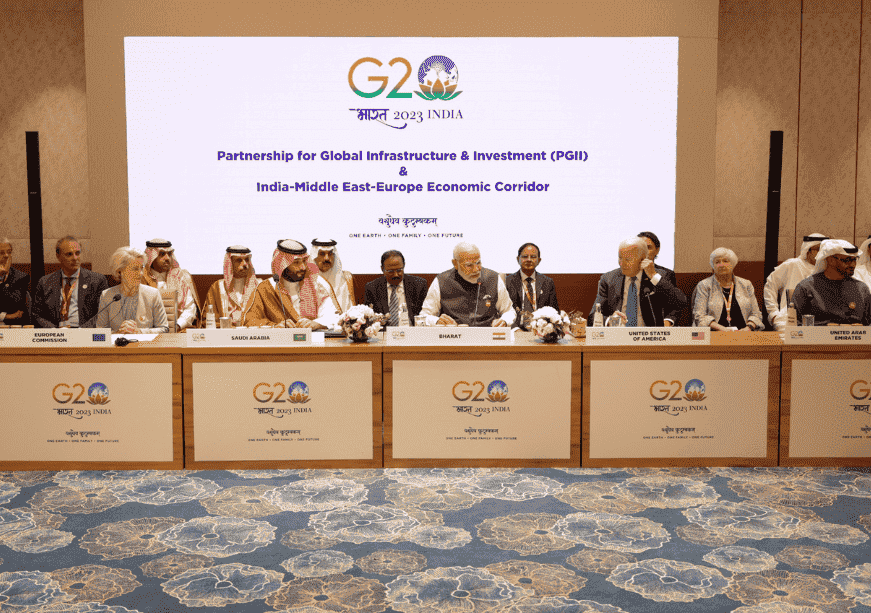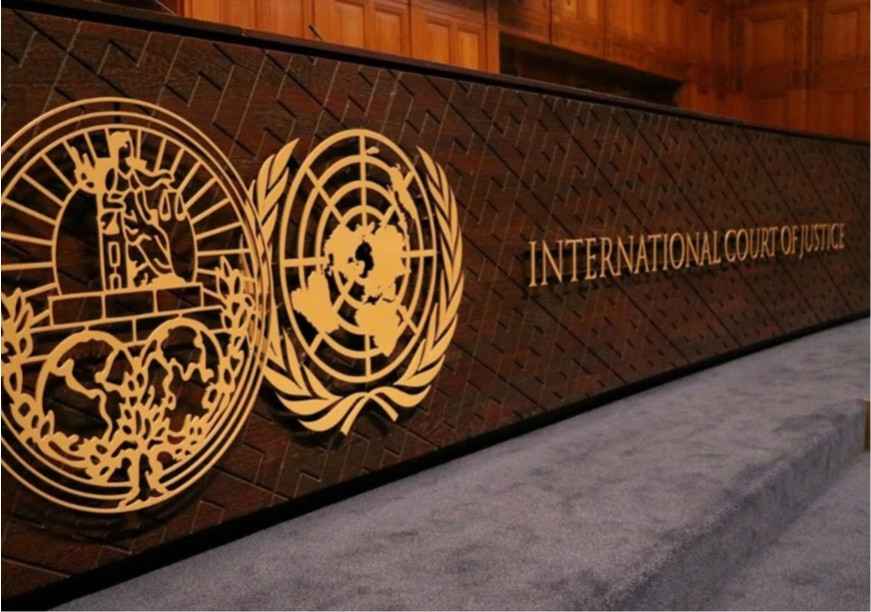The US relations with Saudi Arabia and the United Arab Emirates (UAE) have arrived at a stalemate due to their diverging views on regional stability and concern over their own national security objectives. As a result of Washington’s unreliability as a security guarantor in the region, the lack of national security support for Saudi Arabia and the UAE, Russian influence in the Middle East, and the rise of China, Riyadh, Abu Dhabi, and other regional capitals, have chosen to hedge their bets and make choices that may not align with US national security interests. The US does not have the same dominance it once held over the Gulf region. Today’s complex realities require diplomatic, political, and economic statecraft that is completely different from the famous American mantra of “with us or against us”. It is a matter of national security for Riyadh and Abu Dhabi to re-establish new contours driving the bilateral relations with the US to one that is more transactional in nature, such as those with Moscow and Beijing.
Brzezinski’s “Grand Chessboard” and the Middle East
In his powerful book “The Grand Chessboard”, Zbigniew Brzezinski, the US National Security Advisor to President Jimmy Carter and one of the most influential American geostrategists of the 20th century, argued that for Washington to maintain global hegemony it has to maintain primacy over the Eurasia landmass. In his argument, he carved Eurasia into four spaces: West, East, South, and the Middle. One of the main conditions, he argued, for American hegemony to prevail geopolitically is “the southern region subjected to domination by a single player”, along with major geopolitical and geostrategic conditions such as preventing the alliance between the anti-West, a Russia-led middle space and China-led unified East. In addition to this geopolitical and geostrategic landscape, America must face the reality of its resource scarcities when attempting to maintain multi-theatre dominance as it used to do in the decades that followed the Second World War.
One of the main conditions, he argued, for American hegemony to prevail geopolitically is “the southern region subjected to domination by a single player”, along with major geopolitical and geostrategic conditions such as preventing the alliance between the anti-West, a Russia-led middle space and China-led unified East.
In today’s consequential strategic theatre of the Middle East, Washington’s foreign policy elites are still grappling with fundamental strategic dilemmas. First, a US strategic pivot towards the Indo-Pacific and the de-facto undervaluation of the Middle East as a strategic theatre. Second, the Middle East continues to control and dictate the global energy dynamics. Third, Washington is not seen as a reliable security guarantor anymore. And finally, Moscow and Beijing are already filling some of the vacuum left by Washington in the region.
Different tone, the same substance
The Saudis and Emiratis have most recently been met with dead ends from Washington. The exclusion of Gulf states from the Obama administration’s Iran nuclear deal in 2015 was considered a blatant disregard of Gulf security interests. Against that backdrop, the Trump administration’s decision to not retaliate against the Iranian attacks on the Saudi oil facilities in 2019 meant a de facto death of the Carter Doctrine. During campaigning, President Biden committed to treating Saudi Arabia as a “pariah state”. After assuming office, the Biden administration refused to engage directly with the crown prince, withdrew Washington’s support for the Saudi-and-Emirati-led campaign in Yemen, pursued negotiations for Iran nuclear deal 2.0, and removed the terrorist designation status from the Houthis, and delayed arms deals to Riyadh and the Abu Dhabi.
Against that backdrop, the Trump administration’s decision to not retaliate against the Iranian attacks on the Saudi oil facilities in 2019 meant a de facto death of the Carter Doctrine.
From Obama to Trump to Biden, Washington’s actions and inactions altered Saudi Arabia’s and the UAE’s strategic thinking and decades-old trust in the reliability of the US as a security guarantor. Furthermore, US allies and partners budgeted their strategic calculus for the changing global order with the rise of China, India, and Russian revisionism. Additionally, they have been left with new factors, such as the US foreign policy incompetence demonstrated in the chaotic withdrawal from Afghanistan and US’ domestic crises via internal instability with intensified internal political and racial polarisation.
Why not produce more oil?
Nothing captures the new regional realities that Washington faces more than the fact that Saudi Crown Prince Mohammed bin Salman (MbS) and UAE.’s Sheikh Mohammed bin Zayed al Nahyan declined to speak to President Biden. A week later, the two princes spoke with President Putin and Ukraine’s President Zelenskyy. The Biden administration wants the two Gulf countries’ support in containing the global energy price surge by producing more oil which would obstruct the OPEC+ framework. UK’s Prime Minister Boris Johnson landed in Riyadh and Abu Dhabi to make an appeal to the two princes and ask for the same thing that the Biden administration has been seeking for some time now. Johnson’s visit clearly did not yield what the West had hoped for. Furthermore, the Saudi foreign ministry dismissed reports in the media that US Secretary of State Antony Blinken would be visiting the Kingdom. OPEC+ is one of the main tools of geopolitical and economic statecraft that Saudi Arabia has developed after a no-holds-barred price war with Moscow at the beginning of the pandemic. By asking the Saudis to produce more oil, Washington is simply asking MbS to dismantle the OPEC+ framework and eradicate the Kingdom’s credibility as a leading voice with convening power among the oil-producing nations. Unsurprisingly, policymakers in Riyadh and Abu Dhabi have to ask the most basic question: why should we do it? And if Riyadh and Abu Dhabi were to entertain Washington’s requests, why should Saudi Arabia and the UAE do it for free? What would Washington offer in return to them? And the most critical question is whether the US thinks this colossal request should be cost-free, or maybe just worth a photo with Secretary Blinken, or perhaps a phone call with President Biden? What does it say about how Washington sees itself and the Gulf nations?
UK’s Prime Minister Boris Johnson landed in Riyadh and Abu Dhabi to make an appeal to the two princes and ask for the same thing that the Biden administration has been seeking for some time now.
By refusing to call President Biden or to receive Secretary Blinken in Riyadh or Abu Dhabi, Saudi Arabia and the UAE are sending clear messages that Washington needs to recognise the rapid emergence of a multipolar world, and a need to reconfigure the Saudi Arabia-US and UAE-US relations from this lens and not from one led by US hegemony. Washington should internalise the vital interests that Saudi Arabia and the UAE have with China and Russia today on security, military, and economic levels.
The decades-long playbook is not valid anymore
The Gulf’s strategic autonomy toolkit includes building domestic military and tech capabilities, innovating new regional architectures such as the Indo-Abrahamic block, and seeking diversified alliances beyond the US to include nations such as China, Russia, U.K., India, Greece, Israel, and France. Furthermore, Strategic autonomy is not limited to military capabilities but includes economic diversification. For instance, Saudi Arabia has been discussing the possibility of allowing for petrochemical sales in the Chinese yuan. It is not a choice of great power over another, it is a choice of Gulf interests. Washington should understand that the new norm is going to be one of a more mutually beneficial and transactional relationship with the Gulf. In short, the Gulf countries feel they have been taken for granted strategically by Washington. It is in their national interest to re-establish new contours for the bilateral relations on a more even footing. While disconnecting from Washington is not an objective for Riyadh and Abu Dhabi, bilateral relations that are based on respect and consideration is. In an era of great power competition, every ally and partner counts, but it seems that Washington still thinks that it is still the end of history.
______________________________________________________________________________________________________
Mohammed Soliman is the director of the Strategic Technologies and Cyber Security Program at the Middle East Institute in Washington.











